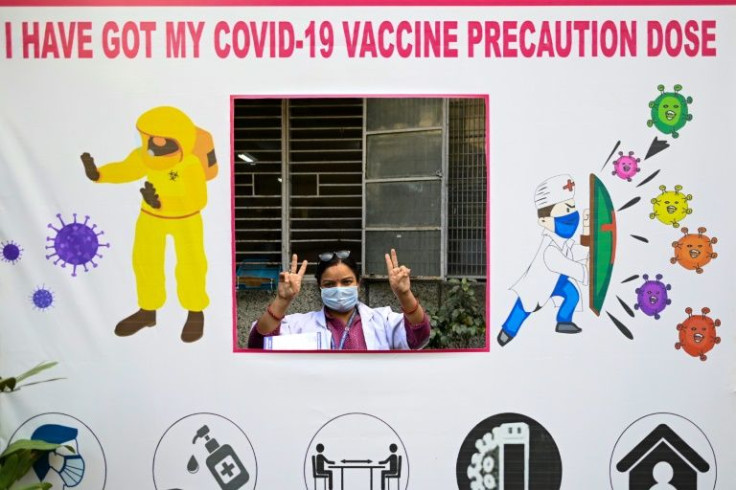Omicron Vs. Cold Symptoms: 3 Signs You Won’t Get From Common Cold
KEY POINTS
- Symptoms like loss of the sense of smell and taste differentiate COVID-19 from the common cold and the flu
- Omicron-related cases had "high fever" and "severe headache" as predominant symptoms
- Doctors warned that people may find it difficult to determine an illness right now due to the ongoing cold and flu season
Despite the similarities between the symptoms of the coronavirus and the common cold, the former has a few features that are exclusive to it, medical experts said.
"A unique feature of COVID-19 is loss of sense of smell and taste, which you will not find in any common cold virus," Dr. Hai Shao, an infectious disease physician with Sharp Chula Vista Medical Center in California, told CBS 8.
For omicron cases specifically, the doctor said that the variant had high fever and severe headache as predominant symptoms, unlike the common cold.
"If you do have those symptoms, it’s much more concerning that you may have gotten COVID than the common cold virus," Shao said.
The doctor also pointed out that the symptoms the omicron and previous COVID-19 variants have in common, which are fever, chills, headache and sore throat in the early stages and coughing, shortness of breath and difficulty breathing as the illness progress.
Researchers previously discovered that omicron may have acquired at least one of its mutations by picking up a snippet of genetic material from the common cold virus, possibly in an effort to make itself look "more human" in order to evade attack by the immune system.
Doctors warned that parents may find it difficult to determine their children's illnesses right now due to the ongoing cold and flu season.
"There's no way for a parent to tell the difference between a common respiratory virus and a COVID infection. So any time a child gets sick, they need to be kept at home so they don't run the risk of spreading whatever it is they have, particularly if they have COVID," said Dr. Mark Sawyer, a pediatric infectious disease specialist with Rady Children's Hospital.
Shao urged people to "use some common sense" and "practice some infection control measures" should any symptoms arise.
He also recommended that people "avoid going to a crowded place without a mask" and"try not to be close to people without a mask until your symptoms resolve."
The U.S. set a new global record for COVID-19 cases Monday after reporting 1.35 million new infections, Reuters reported. The country also saw an all-time high of 136,604 hospitalizations on the same day.
Overall, the U.S. has reported a total of 61,732,283 coronavirus cases and 837,274 virus-related deaths since the pandemic began, according to data provided by the Centers for Disease Control and Prevention (CDC).
The surge in cases, which is also being observed in other countries, has been attributed to omicron. The variant is infecting more than 1% of at least 26 countries' populations each week, according to the World Health Organization (WHO).
Currently approved vaccines "continue to provide good protection against severe disease and death," including omicron, according to Dr. Hans Kluge, WHO's regional director for Europe.
The CDC, for its part, also said that "current vaccines are expected to protect against severe illness, hospitalizations and deaths due to infection with the omicron variant."
However, the agency noted that breakthrough infections — cases in which fully vaccinated individuals contract COVID-19 — are still "likely to occur."

© Copyright IBTimes 2025. All rights reserved.





















